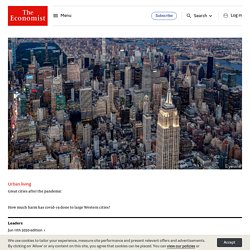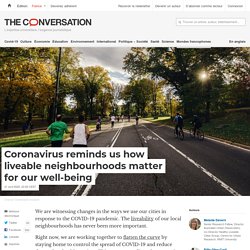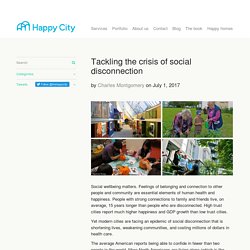

Community Ties Final pg. Why the pleasure and meaning of mingling in bars can't be matched by a table for 2. As bars begin to reopen across the world after coronavirus closures, the question of how we will socialize within them remains perplexing.

The traditional bar is a complex social space and serves so many functions. Twenty years ago, a group of French anthropologists studied the behaviour of young people in a bar called Café Oz, located in the Halles district of Paris. Café Oz had an Australian theme, as its name might suggest, but this was not its main appeal. The bar’s popularity among young people had more to do with the kinds of social encounters that were possible within its walls.
While the traditional Parisian café or bistro kept customers confined to a single table (which the server had probably chosen for them), Café Oz — like British-style pubs — was designed to encourage customers to walk around. This encouraged people to hang around the bar, joining in conversations already underway or to sit down with strangers at the long tables installed for that precise purpose. Urban living - Great cities after the pandemic. UNTIL RECENTLY big cities were unstoppable.

Year after year places like New York, London and Paris grew richer and busier. Since the turn of the century they have shrugged off a dotcom crash, a financial crisis, terrorist attacks and political populism caused partly by resentment at their prosperity and arrogance. Could their magical run possibly be coming to an end? There are reasons to worry. Covid-19 struck the most exciting, global cities hardest—the ones you find on the side of bags full of designer clothes.
Such quietness poses a grave threat to cities, especially the big, global ones. The virus has attacked the core of what makes these cities vibrant and successful. But crowding people in offices and bars now seems irresponsible. If they lose people, cities will run into a fiscal crunch, too. And yet cities are stronger and more resilient than they seem. Cities remain invaluable as places where people can build networks and learn how to collaborate. Coronavirus reminds us how liveable neighbourhoods matter for our well-being. We are witnessing changes in the ways we use our cities in response to the COVID-19 pandemic.

The liveability of our local neighbourhoods has never been more important. Right now, we are working together to flatten the curve by staying home to control the spread of COVID-19 and reduce demand on health services. This means spending a lot more time at home and in our local neighbourhoods. We are all finding out about the strengths and weaknesses in the liveability of our neighbourhoods. This experience can teach us some lessons about how to live and plan our communities in the future. À lire aussi : How do we create liveable cities? Why many employees are hoping to work from home even after the pandemic is over. Like millions of Americans, Laura Hamill, chief people officer and chief science officer at software company Limeade, has been forced to work from home since early March in an effort to stop the spread of COVID-19.

Though today’s forced remote culture has been an adjustment for many, the mom of two teenagers says she looks forward to the possibility of working from home more often even after the pandemic subsides. “To me it sort of takes the edge off of the second shift,” she tells CNBC Make It. “I can start the dishwasher in the middle of the day or I can put out the chicken to cook for a later meal.” She adds that for her, working remotely has been a huge advantage as a parent.
Like Hamill, many others are hoping to make their home office more of a permanent work space in the future. At Limeade, Hamill says they’re already thinking of ways in which they can make their current flexible work program more accommodating. Tackling the crisis of social disconnection. Social wellbeing matters.

Feelings of belonging and connection to other people and community are essential elements of human health and happiness. People with strong connections to family and friends live, on average, 15 years longer than people who are disconnected. High trust cities report much higher happiness and GDP growth than low trust cities. Yet modern cities are facing an epidemic of social disconnection that is shortening lives, weakening communities, and costing millions of dollars in health care.